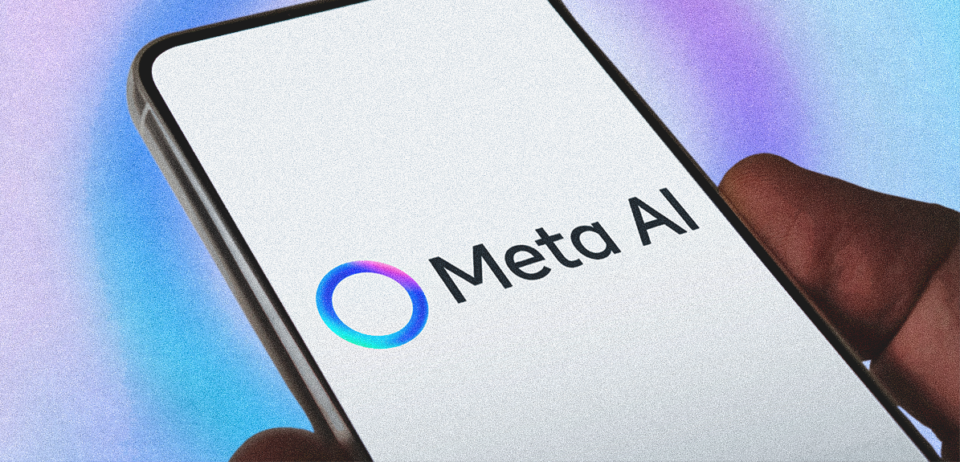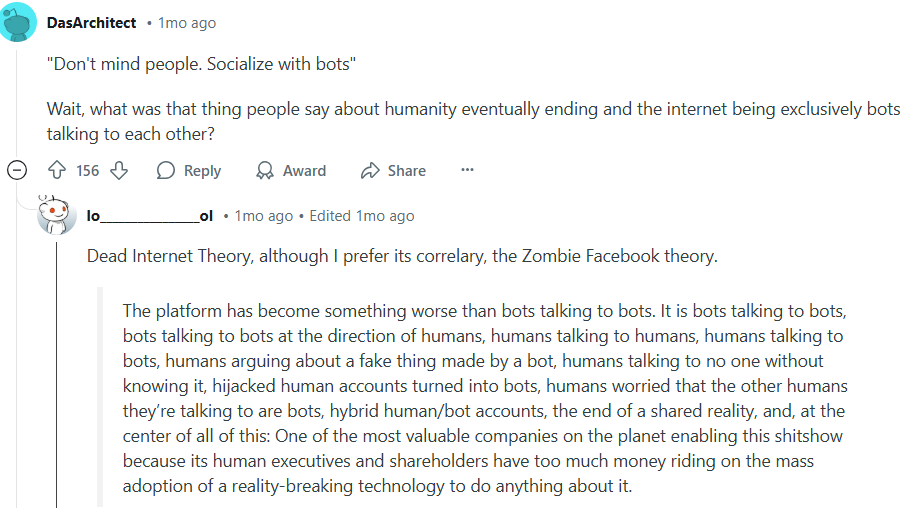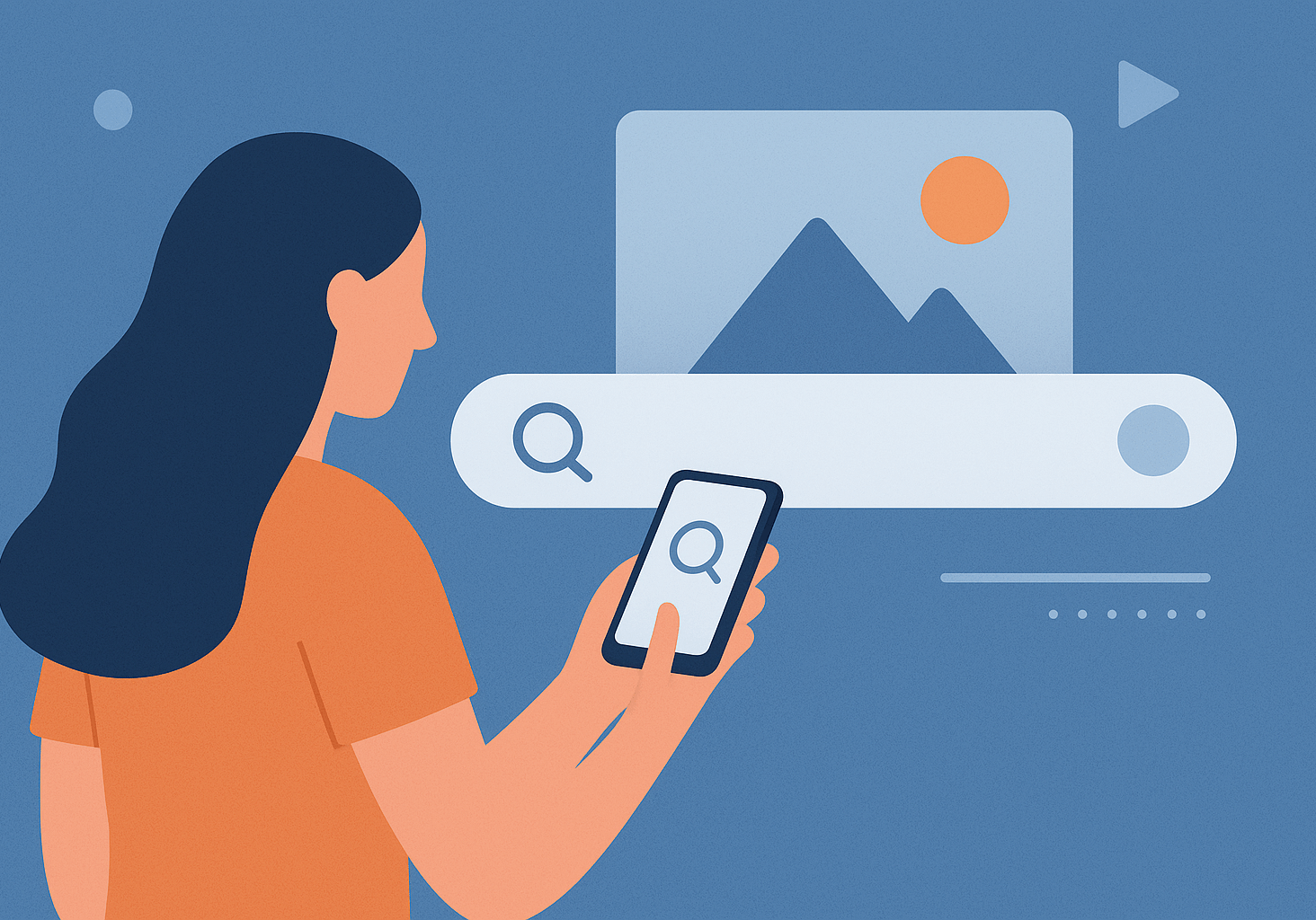
The Rise and (Supposed) Fall of Meta AI Bot Influencers
Meta AI bot influencers—digital personalities lurking across Meta platforms since 2023. While they might seem like old news, they’ve made headlines again. Why? In January 2025, Meta announced it was pulling the plug on some of its AI bots.
So, is this the end of AI-bot influencers? Did these non-human digital entities’ rise and fall unfold within just two years? Not quite. The real story isn’t about their disappearance but what comes next. Meta might be scrapping some AI influencers, but AI-bots as a concept? They’re here to stay.
It’s time to examine Meta’s plans, what actually happened, and why AI-bot influencers aren’t fading away anytime soon.
Meta’s AI bot influencers plan fuels the dead-internet theory
Back in late 2023, Meta played around with code and created AI bots that could pass off as celebrities—or even everyday humans. These bots had been quietly lurking on the platform, available for casual chats. They seemed harmless, right? Just AI making small talk. So, what changed?
In December 2024, the Financial Times dropped a bombshell: Meta was planning to roll out AI-powered user accounts that wouldn’t just chat but would mimic human profiles—complete with bios, profile pictures, and even the ability to generate and share content. Until then, AI-bots’ existence wasn’t a significant concern for users. But once this news broke, the reaction was anything but mild.
Cue the ‘Dead-Internet Theory’ panic.
For those unfamiliar, the Dead Internet Theory claims that AI-generated content has already taken over, leaving minimal real human activity online. While the theory has been floating around as a conspiracy for years, Meta’s AI bots gave it new fuel. Reddit, Threads, and X users started debating whether they were unknowingly engaging with AI instead of real people.

Then came January 2025. Meta, seemingly responding to the backlash, pulled its AI-bot influencers and restricted searches for their usernames.
Meta stated that it decided to remove AI characters due to a bug that prevented some users from blocking them.
“The accounts referenced are from a test we launched at Connect in 2023. These were managed by humans and were part of an early experiment we did with AI characters,” the company explained. “We identified the bug that was impacting the ability for people to block those AIs and are removing those accounts to fix the issue.”
Subscribe to our bi-weekly newsletter
Get the latest trends, insights, and strategies delivered straight to your inbox.
The real question is why Meta is trying to get cozy with AI-Bot influencers
Whether Meta admits it or not, the company is deeply invested in AI-bots. Is it strategic? Business-driven? An innovative push? Whatever the reason, don’t be surprised if Meta makes another AI-related announcement soon.
So, why is there gravitation toward AI influencers? The answer lies in numbers—the kind that investors love. Growth metrics are everything for major tech companies, and Meta’s success is directly tied to user engagement.
For years, Meta’s platforms—Facebook and Instagram—have seen steady increases in Monthly Active Users (MAUs) and Daily Active Users (DAUs). But here’s the catch: younger users are drifting away. The percentage of 18-—to 24-year-olds on Facebook dropped from 24% in 2012 to just 16% in 2020. While Meta has managed to keep its numbers up, the next generation isn’t as hooked.
Here come AI-bot influencers.
With AI-generated influencers and bot-driven engagement, Meta doesn’t have to worry about shifting demographics or evolving user behavior. No fickle audiences, no unpredictable trends—just steady engagement numbers.
Bots can inflate metrics and create artificial engagement, keeping up the illusion that Meta is still the world’s #1 social media platform. If AI-driven profiles become part of the equation, who’s behind those’ active users’? Will that turn a theory into a fact?
Rising questions and pointing fingers — a sign of mistrust in Meta
Users are wary of AI bots. No one wants to scroll through social media wondering if they’re interacting with a real person or an algorithm in disguise. People crave transparency and authenticity, not carefully curated digital illusions controlled by corporations or political agendas.
But Meta’s recent moves have only fueled skepticism. First, the company dismantled its fact-checking department. Then, it planned to seed AI-bot influencers mass-wise.
Flooding platforms with AI-generated influencers have pushed public distrust to new heights. Users are now questioning whether they can trust the content they engage with or if Meta is quietly reshaping the digital landscape to serve its own interests. Who will be controlling the thoughts and perspectives of these AI bots? Who will be checking the facts of these AI bots?

From a marketing point of view, these bots will not benefit businesses, especially small and mid-sized ones. Why? While bots may increase impressions and engagement, who will make the actual purchases? Real humans will. If the numbers look higher on paper but fundamental interactions continue declining, which business will benefit from paid marketing or ad placements?
AI-bots are inevitable — but can Meta rebuild trust?
There’s no denying it—AI Bots have gone from an experimental concept to a full-blown digital phenomenon. From Character.AI to chatbots across every major platform, AI-driven interactions are becoming an unavoidable part of our online experience. The reality? They’re here to stay.
But that leaves Meta with one big challenge: How can it assure users that AI-bots won’t turn social media into a deceptive, engagement-fueled illusion?
The answer lies in transparency and trust. Meta must communicate how AI-bots operate, what data they collect, and whether users engage with real people or digital entities. A lack of clarity will fuel skepticism and damage the platform’s credibility.
For businesses and advertisers, the solution isn’t just about accepting AI—it’s about adapting to the new digital reality. Diversifying advertising strategies, reducing dependence on Meta, and exploring alternative channels—like direct marketing or other social platforms—could be the safest way forward in this AI-driven era.
Cut to the chase
Meta introduced AI-bot influencers in 2023 as an attempt to integrate AI bots into its platforms and interact with human users. Fast-forward to January 2025, when Meta announced the removal of these profiles from social media. But what compelled Meta to take such action?


